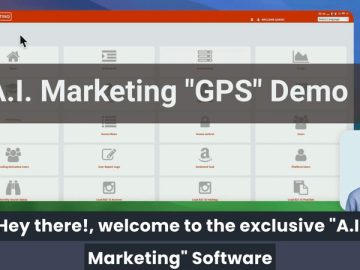‘I compare AI to the New York subway,’ says Balancelogic CEO Bill Campbell. ‘It’s a great tool that’s quick and convenient, but you have to be cautious. Just like in the subway, there are precautions you need to take with AI, particularly concerning data security.’
Dawn Sizer and some of her clients have already seen the profound benefits in using AI in their daily operations.
Sizer, CEO of Mechanicsburg, Pa.-based MSP 3rd Element Consulting, has been providing resources such as webinars and hands-on training for tools like Microsoft Copilot. The purpose is to help them navigate its limitations and learn effective prompting techniques.
“AI is a powerful tool, but it’s crucial that clients understand it’s not a catch-all solution,” she told CRN. “We have initial conversations about how AI can be a great asset if used appropriately, but we tell clients they should avoid inputting personal or sensitive information.”
Sizer also uses case studies and live demonstrations to illustrate the value of AI investments.
“We went to Microsoft for a use case involving a legal office, and their ROI on Copilot was compelling,” she said. “It demonstrated how AI could streamline policy creation and data management which highlighted both time savings and efficiency.”
She said a law office client “benefited significantly” from AI after using Copilot to draft policies, manage data and ensure compliance with regulations.
Copilot is just one of the many ways end customers are streamlining operations and saving time on daily tasks, but training is crucial when it comes to the powerful tool.
But the introduction of AI can be daunting, especially when it comes to managing data security and transparency. Many MSP executives, like Sizer, are taking the time to host webinars and trainings for their clients to educate them on the benefits and pitfalls of AI and the importance of data governance.
“We’re receiving a lot of questions from our clients about data protection, security and transparency,” said Brent Yax, CEO of Troy, Mich.-based Awecomm. “The addition of structured AI frameworks helps us address these concerns effectively and provides our clients with the clarity they need before diving into AI technologies.”
Yax has been offering clients courses on AI fundamentals involving some use cases. The goal is to educate how AI can automate repetitive tasks, improve process efficiency and enhance decision-making by analyzing large data sets.
“When introducing AI to clients, it’s important to start with clear objectives and measurable outcomes,” he said. “Clients are jumping into AI without fully understanding the implications. It’s crucial to have foundational knowledge and frameworks in place to guide these discussions and ensure informed decisions.”
And the biggest component is cybersecurity, so Yax’s team integrates AI training into their broader security awareness programs.
“We offer both in-person and online training modules on cybersecurity and AI,” he said. “Engaging management and employees in continuous learning helps mitigate risks and ensures that AI is used responsibly.”
For Wayne Roye, it’s all about data governance. Proper data governance involves categorizing and controlling data access, which in turn enhances overall security.
“AI is phenomenal for security, but one of the gaps is that people never looked at data governance before,” said Roye, CEO of Staten Island, N.Y.-based MSP Troinet. “Security is not above data governance, it’s part of it. Setting up strong data governance is crucial for effective AI implementation.”
Roye, who is holding bi-weekly webinars and offering other educational resources focused on AI tools like Copilot, said he is making sure clients know that proper security protocols must be in place to mitigate fears around data privacy.
“I’m always telling my clients that AI can only see what you allow it to see. It doesn’t have access to everything in your organization unless you grant it,” he said.
Like Sizer, Roye also has a client that has seen the direct benefits of using AI.
“A client in media is thrilled with how AI has cut down their content creation time,” he said. “They can now generate detailed marketing pitches and analytics reports quickly.”
Bill Campbell approaches AI the same way he approaches cybersecurity awareness.
“People need to understand the risks associated with AI and how to protect themselves,” said Campbell, CEO of Waldorf, Md.-based Balancelogic. “It’s about educating clients to handle AI tools with the same caution they would with cybersecurity threats.
“I compare AI to the New York subway,” he added. “It’s a great tool that’s quick and convenient, but you have to be cautious. Just like in the subway, there are precautions you need to take with AI, particularly concerning data security.”
“We emphasize how AI can streamline tasks that traditionally take a significant amount of time,” they said. “For example, AI can reduce the time spent on tasks like writing content or managing customer service inquiries by up to 85 percent.”
He has seen clients successfully benefit from AI such as implementing chatbots on their websites but he still stresses that it cannot totally replace humans.
“AI is a tool, not a replacement for human judgment,” he said. “It’s essential to verify the accuracy of AI-generated content. Think of it as ‘trust but verify.’ AI can generate information quickly, but it must be checked for accuracy and relevance before being used.”
And as Campbell continues to help clients navigate the evolving landscape of AI, his commitment to client education and security remains a cornerstone of his strategy.
“AI is an exciting and powerful tool,” he said. “Our goal is to help clients embrace it responsibly and securely.”





